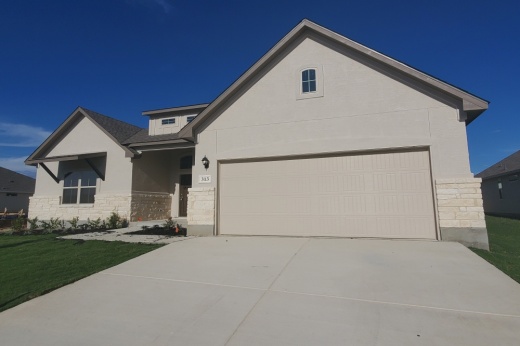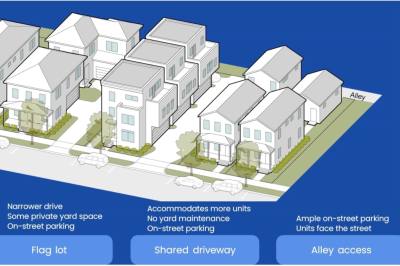If approved by Houston City Council, these changes—which come from the city's Livable Places committee—would allow market-based parking in an effort to decrease the number of parking spaces for residences within a quarter-mile of public transit. They would also provide new rules to encourage the development of four types of housing: second dwelling units, multiunit residential projects, courtyard-style developments and narrow lot developments.
After a series of presentations to the public throughout April, the proposed amendments and public feedback received about them were presented to the planning commission before a public hearing at its meeting April 27.
At the meeting, Dipti Mathur, division manager at planning and development, shared statistics on the engagement they have collected on the proposed changes. Meanwhile, Suvidha Bandi, a project manager with planning and development, presented some suggestions from public feedback to be considered by the commission.
Mathur said that the Livable Places website has seen 5,400 visitors, and some of the public presentations attracted more than over 200 attendees. She said they went to about 14 different organizations and made eight presentations in total.
"We also have been going and will continue to go to metro transit stations and bus stops to gather public input," Mathur said. "We went where people were, so we went to many neighborhood parks, community leaders, group association discussions and various professional and advocacy organizations."
According to Mathur, Livable Places surveyed 400 citizens about the proposed changes and, of those respondents, about 41% were renters, 26% go to work without taking a car, and 46% would choose to save money on housing if it meant one or zero parking spaces. Of the housing options suggested, Mathur said 67% of respondents support garage apartments, while 59% support courtyard-style development.
Bandi said her team has gotten over 300 comments on the Livable Places website and are still analyzing them.
The following are suggestions from the community, per Bandi:
- Consider a size limit, somewhere between 1,500 square feet and 1,800 square feet, for a second dwelling unit;
- Changes to multiunit residential requirements: project should have up to four units on all streets and up to five to eight units along major thoroughfares and collector streets; and one parking space per unit of 1,000 square feet or less;
- Change guest parking requirements from one guest space for every six units to one guest space for every four units; and
- Reducing the distance required from certain transit options for an area to be considered for market-based parking requirements: Livable Places is considering reducing the buffer to a quarter-mile for high-frequency bus stops and Blue Route stops that overlap with Opportunity Zones and census tracts with 25% or higher zero car ownership. This is a decrease from a half-mile distance from transit stations and high-frequency bus stops.
"I would ask each of you to look at the Livable Places website and see the mission of the committee," Dishberger said to the committee. "It was to provide more types of building for missing middle homes, make [accessory dwelling units] easier to build, increase home type options, improve safety for pedestrians and cyclists, and reduce parking requirements. I'm not seeing anywhere where our mission was to make it harder to build on narrow lots, force the use of alleys and increase the setbacks to the garage."
Ginger Baldwin, a resident of Sunset Heights, said she saw benefits to the ideas presented.
"Cars are constantly blocking off my sidewalks," Baldwin said. "So there's little street parking for my friends and family to utilize, and this doesn't even mention the concrete used instead of green spaces, which are prone for flooding environmental factors."
Austin Pooley, vice president of New Liberals of Houston, said he was "disappointed" in the revisions, which he said cut back on the amount of market-based parking.
"I would like to see market-based parking expanded to cover the entire city of Houston, not be reduced in the way that has been recommended here," Pooley said. "We should really be encouraging market-based parking so that, for the future of my kids, we can move towards a Houston where we don't have to use cars as transportation, where in the future—when we have better transportation options, more transportation options—we can reduce the parking steadily over time."
Officials with Livable Places are encouraging the public to reach out and provide comments on the proposed amendments by emailing [email protected].
On May 11, the planning commission will reconvene and present its recommendations to the planning and development department based on continued public feedback.






